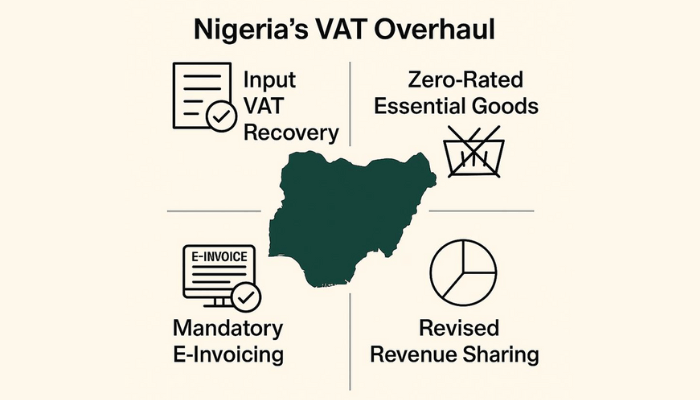In a country where fiscal power has long rested in Abuja, Nigeria’s newly signed value added tax (VAT) reforms could quietly rebalance economic control, handing more revenue to states and easing cost pressures on families and businesses.
Signed into law on June 26, 2025, by President Bola Tinubu, the new tax reform package introduces sweeping changes to how VAT is applied, recovered, and distributed. Four key shifts, centered on input VAT recovery, zero-rated essential goods, mandatory e-invoicing, and a revised revenue sharing formula, could reshape how Nigerians pay taxes.
“I feel a sense of fulfilment over signing of new tax laws,” said Taiwo Oyedele, chair of the Presidential Tax Reform Committee. “It’s been a very difficult journey. And thanks to all our stakeholders… now that we’re here, I think the foundation has been laid.”


